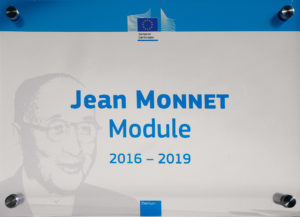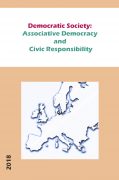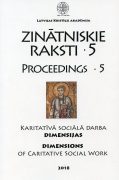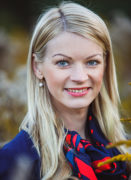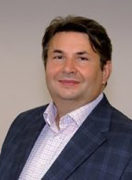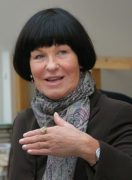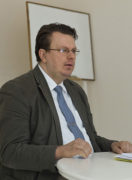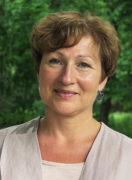Latvian Christian academy has received an awarding ERASMUS+ “Jean Monnet Module” Plaque from EC EACEA (Education, Audiovisual and Culture Executive Agency) in May, 2017. As the following letter states, “The purpose of this plaque is twofold. It serves primarily as a label signifying quality in European integration studies and represents the achievements of your Jean Monnet Module in this field. At the same time it also provides visibility for the Jean Monnet Action, presenting it as focal point within and outside your institution for the promotion of European issues.”
EXCELLENCE OF EUROPEAN STUDIES
Study year 2018/2019.
Every student is asked to address director of Study department Agnese Sējāne akademija@kra.lv and register for Jean Monnet Module studies following your study plan (changes may appear):
Subjects:
Semester 1.
- “The European Social Market Economy” (16 hours) – lead by prf. Liesma Ose.
- “Associative Democracy Development in European Union” (16 hours) – lead by Dr. Ivars Indāns.
Semester 2.
- “Anthropological Discourse in the Context of Methodological Innovation of Social Entrepreneurship” (16 hours) – lead by Dr. Aivars Stankevics.
- “Structure, Development and Management of Social Enterprise” (16 hours) – lead by Dr. Lāsma Līcīte.
- “Capital Investments and Foundations of Social Enterprise” (16 hours) – lead by Dr. Ņina Linde.
Attention for students!
Please use references to materials useful for discussions:
Franz H., Hochgerner J., Howaldt J. Challenge Social Innovation. Springer, 2012.
Hulgard L. Discourses of Social Entrepreneurship: Variations of the Same Theme? EMES, 2010.
Round-table debate was held on “Challenges of Social Entrepreneurship Development in Latvia”, Latvian Christian academy, October 5, 2018.
no images were found
Registration for participation in the conference “European Framework for Social Entrepreneurship Development in Latvia” will be open on May 23-25, 2019 at the Study department of Latvian Christian academy.
EUROPEAN SOCIAL ENTREPRENEURSHIP
WITH THE FUTURE.
SUMMARY OF THE PROJECT.
The Module “European Social Entrepreneurship with the Future” (ESEF) is part of European action which aims at stimulating teaching, research and reflection in the field of European integration studies in the form of Social Entrepreneurship (SE). Main purpose is stimulating of more extensive knowledge and professional interest on the SE development for students who do not come automatically into contact with European studies: Theology & religion studies, Church art, and Social work students. Module will foster creation of entrepreneurial spirit as the way of thinking and concrete action. There will be implemented a website, roundtable debate and international conference together with European Centre of Workers’ Questions (EZA) on European SE processes, results of which will be disseminated to all 39 European partner institutions of EZA through EZA. Planned roundtable debate with Latvian policy makers aim to initiate activities in promoting national legislation for ES in Latvia. The Module is expected to enhance students’ competence in organizing social enterprises after their graduation, and adopts innovative method of integrative theology in explaining EU integration issues in connection with human factor (anthropology). Teaching and research activities by young researchers in team with professors involved and professionals in the field will create solutions for integration problems, empower students to see SE as a force for social change in Europe. The Module is designed from Judeo-Christian anthropological perspective to increase the culture of reciprocity in society and to gain valuable tools in preparing students to leave an impact to the lives of local communities for cohesive actions. New researchers will gain experience for excellence in teaching on EU integration topics and will apply innovative methodology of research impact assessment model and that of integrative theology approaching EU integration issues.
THE MODULE WILL FOSTER the dialogue between policy makers, academics in order to enhance governance of the EU policies regarding SE in Latvia.
MAIN OBJECTIVES
- To promote excellence in teaching and research in the EU studies,
- To equip students and young professionals with knowledge of European Union subjects relevant for their academic and professional lives and to enhance their civic skills,
- To foster dialogue between the academic world and policy makers in particular to enhance governance of the EU policies.
SUBJECT AREA OF THE JEAN MONNET MODULE: EU INTERDISCIPLINARY STUDIES.
The Module is viewed as a part of European actions which aim at social inclusion, participation, solidarity and at stimulating teaching, research and reflection in the field of European Integration studies at the level of HE.
THREE PHASES OF IMPLEMENTATION:
- Preparation phase: Agreements on methodological principles course outlines; dissemination plan and dissemination instruments.
- An Implementation phase: The Module adapts an innovative method of Integrative theology, teaching activities – lectures and seminars, workshops/ The SE business plan (enterprise design). Three articles by young researchers will be written and published during the Module. Round table discussion with policy makers involved.
- Follow-up and Dissemination: Multiplication of results through EZA organization international seminars at LChrA. Dissemination according to the Dissemination plan.
IMPLEMENTATION
RESPONSIBLE |
TITLE |
ACTIVITY |
TIME |
Assist.prof. A. Stankevics, Prof. S. Gūtmane, Dr. I. Indāns, Prof. N. Linde, Prof. L. Ose, Assist. prof. L. Dobele. |
“Adaptation of an innovative method of Integrative theology”. |
Seminar and round table discussion. |
Sept. 2017. |
Prof. L. Ose. |
“The European Social market Economy”. |
Presentation / Seminar. |
Oct., Nov. 2016. |
Assist. prof. L. Dobele. |
“Structure, Development and Management”. |
Presentation / Seminar. |
Jan. – May 2017. |
Prof. N. Linde. |
“Capital, Investments and Foundations of Social Entrepreneurship”. |
Presentation / Seminar. |
Febr. – May 2017. |
Dr. I. Indāns. |
“Associative Democracy Development in the European Union”. |
Presentation / Seminar. |
Febr. 2018. |
“Quality Monitoring Meeting:
|
Jan. – May 2017. |
|
LEARNING TOOL “EUROPEAN SOCIAL MARKET ECONOMY” FOR STUDENTS IS AVAILABLE AT THE STUDY DEPARTMENT, LChrA.Please contact Zane Čečiņa akademija@kra.lv |
IMPLEMENTED ACTIVITIES 2016 – 2017
Methodology seminar “Constructing Grounded theory: Practical Guide through Qualitative Analysis” in Social Entrepreneurship was held at Latvian Christian academy in January 20 – 21, 2017 for both practitioners and students. The seminar was run by Dr. Nobert Hark (Germany). Click for gallery under this post.
no images were found
Panel discussion “Social economy business in Future”. Both module students and teachers met with knowledge multipliers, including media representatives to assume on important positions in the Social economy business in future, in February 18 – 19, 2017. The discussion was conducted by prof. Skaidrīte Gūtmane; two-way communication panel was both encouraging and inspiring to reach the student’s minds. Click for gallery under this post.
Invalid Displayed Gallery
International seminar on Quality Jobs together with EC EZA. International seminar together with EC EZA (“European Center for Workers’ Questions”) was held in Jūrmala, June 8-10, 2017, titled “Quality jobs: from minimum wage to an innovation economy and new employment trends in the Baltic States in contrast to other European countries”. Program here: International seminar LATVIA June 8-10 2017 Click for gallery under this post.
no images were found
Innovative methodology presented and discussed. Rector of Latvian Christian academy prof. Skaidrīte Gūtmane gathered students of the Social Entrepreneurship Jean Monnet Module and Social work for the open lecture “Hybrid model for professional and innovative development of Social work” to introduce the innovative methodology of the Integrative theology; discussion followed. Click for gallery under this post. Invalid Displayed Gallery
International seminar-discussion “Education towards White paper & Reflection paper: New European considerations.”
April 27-28, 2018. With participants from Estonia, Lithuania and Latvia.
Invalid Displayed Gallery
International seminar “Striding new paths: Implementing new methods in Social work effectively.”
May 7, 2018. Various aspects of interdisciplinary approach to Social work – both theory and practice – were discussed. Anthropology, onthological anthropology, the concept of man in the Judeo-Christian tradition – and the concept of Caritative social work. How do these aspects relate to European guidelines for further development of Social work in EU?
With participants from Belgium, Lithuania and Latvia.
no images were found
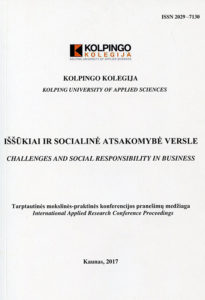
Proceedings of the International applied research conference “Challenges and social responsibility in business”, Kolping University of Applied Sciences (Lithuania) (ISSN 2029-7130), indexed in EBSCO HOST data base.
Publication “Hybrid model for professional and innovative development of Social work” by prof. Skaidrīte Gūtmane, Rector of LChrA. An article with the same topic was published in the Proceedings of the International applied research conference “Challenges and social responsibility in business”, Kolping University of Applied Sciences (Lithuania) (ISSN 2029-7130), indexed in EBSCO HOST data base.
Publication “The legal framework and support instruments for social entrepreneurship development in Latvia” by Dr. Lāsma Dobele, Module Leader. An article by the Module Leader Dr. Lāsma Dobele “The legal framework and support instruments for social entrepreneurship development in Latvia” was published in Research Proceedings of LChrA, Vol. 4 “The innovative content of Caritative social work and Entrepreneurship” (2016; ISSN 1691-3264).
LEARNING TOOL “European democratic society: associative democracy and civic responsibility” published! Case study materials and analysis of European development of democracy and civil society. Reports and case analyses apply the concept of associative democracy and civic responsibility development in Europe. Materials and reflections of the process are taken from different European civil societies. Includes basic texts for students. 170 copies.
Report on the Jean Monnet Module methodology in Vilnius. September 2017. Report on methodology of Jean Monnet Module prof. Skaidrīte Gūtmane in ERASMUS+ international seminar in Vilnius. Click for gallery under this post.
Invalid Displayed Gallery
Lectures from the Team of young researchers. 5 lectures by 5 teachers from the Team of young researchers amounting 80 hours have been delivered to students who do not automatically come into contact with the EU studies (Social work, Theology, Church art, Supervision etc.) at Latvian Christian academy.
CONGRATULATIONS! THE LAW ON SOCIAL ENTREPRENEURSHIP was passed by Latvian Parliament in October 12, 2017. The Law will be in force from April 1, 2018.
Report on Jean Monnet Module implementation by prof. Skaidrīte Gūtmane in ERASMUS+ contact seminar unit in Rome, Italy. October 18-19, 2017. Report on Jean Monnet Module implementation by prof. Skaidrīte Gūtmane in ERASMUS+ contact seminar with Southern Mediterranean countries organized by European Commission’s DG Education and culture unit in Rome, Italy. Click for gallery under this post.
Invalid Displayed Gallery
Team lectures done within the Jean Monnet Module framework in 2016/2017:
- 5 young researchers delivered planned lectures during 2016/2017:
- Social entrepreneurship (18 hours),
- Social market economy (14 hours),
- Anthropological discourse in the context of methodological innovations in Social entrepreneurship (18 hours),
- “Capital investments and foundations of Social entrepreneurship” (14 hours).
IMPACT AND DISSEMINATION
- Students – who do not automatically come into contact with the EU studies. They have been introduced to information and skills for independent research topics of the contemporary European Integration Social Agenda. Strong influence on them for promotion for civic participation skills. They are well positioned to understand integrative approach of European integration in the field of their study programs. Module has become a knowledge pool for adaption to changes of European social and economic structures.
- Academic society – impact by publications from the young researchers’ team. By involvement of EZA (“European Center for Workers’ Questions”) – 39 EZA partner organizations and EZA international seminar,
- Policy makers from Latvian Parliament. The Law on Social entrepreneurship was approved in October 12, 2017 (in force from April 1, 2018),
- Social entrepreneurship, Social work business association,
- Media – key research findings and EZA international seminar debates have been published and broadcasted.
Report on Jean Monnet Module, 1st year results, was submitted in October 24, 2017.
All planned activities for the 1st year of the Module were fulfilled fully.
Seven (7) additional activities were performed, including published research articles by young researchers, presentations of the implementation of the Module in two international ERASMUS+ contact seminars and international EZA (“European Center for Workers’ Questions”) seminar.





